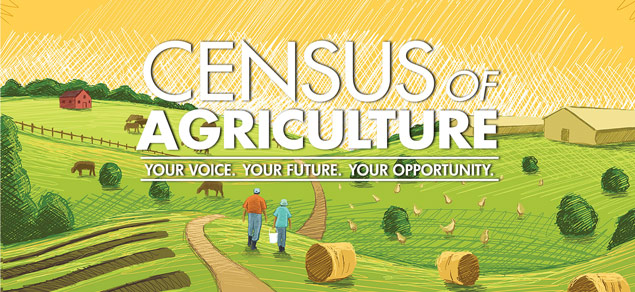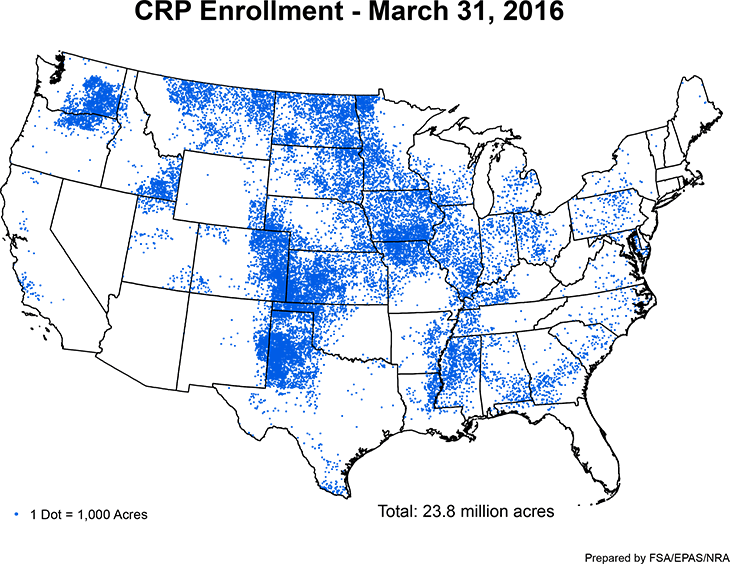Stand Up and Be Counted
It’s Time for the 2017 Ag Census
Your chance to be a part of the 2017 Census of Agriculture is coming soon. The USDA National Agricultural Statistics Service (NASS) will mail census questionnaires to farm and ranch operators through December 2017 to collect data for the current calendar year.
Conducted once every five years, the census looks at land use and ownership, operator characteristics, production practices, income and expenditures.
Census data are used by all those who serve farmers and rural communities, such as federal, state and local governments, agribusinesses and trade associations, including:
- Farmers and ranchers, to help them make informed decisions about the future of their own operations
- Companies and cooperatives, to determine the locations of facilities that will serve agricultural producers
- Community planners, to plan needed services for rural residents
- Legislators, to help them shape farm policies and programs
If you are a young, beginning or small producer, you too can be a part of the census. According to NASS, the census applies to every individual who produces or grows any agricultural product, including field crops, fruits, vegetables, floriculture and livestock, regardless of the size or type of operation. For census purposes, a farm is any place that produced and sold, or normally would have sold, $1,000 or more of agricultural products during the census year.
Completed forms are due by Feb. 5, 2018, and can be returned by mail or completed online at www.agcensus.usda.gov. If you do not receive the form, do not know if you are on the list, or have any questions about completing the form, call toll-free (888) 424-7828.
NASS will release new Census of Agriculture data, in both electronic and print formats, beginning in February 2019.

Courtesy of U.S. Department of Agriculture
Good News From CRP for Beginning Farmers and Ranchers
In January of this year, the USDA began offering an early termination opportunity for certain Conservation Reserve Program (CRP) contracts, making it easier to transfer property to the next generation of farmers and ranchers, including family members.
How does CRP work? The program makes a yearly rental payment in exchange for farmers removing environmentally sensitive land from agricultural production and planting species that will improve environmental quality. Normally if landowners terminate a CRP contract early, they are required to repay all previous CRP payments plus interest.

Courtesy of U.S. Department of Agriculture
The new policy waives this repayment if the land is transferred to a beginning farmer or rancher through a sale or lease with an option to buy. The land that is eligible for early termination is among the least environmentally sensitive land enrolled in CRP.
This change to the CRP program is just one of many ways that USDA is using or modifying its programs, regulations and practices to address the challenges that beginning farmers and ranchers face in accessing land, capital and technical assistance.
“The average age of principal farm operators is 58,” said Lanon Baccam, USDA deputy under secretary for Farm and Foreign Agricultural Services. “So, land tenure, succession and estate planning, and access to land is an increasingly important issue for the future of agriculture and a priority for USDA. Access to land remains the biggest barrier for beginning farmers and ranchers.”
For more information about CRP and to find out if your acreage is eligible for early contract termination, contact your local Farm Service Agency (FSA) office or go online at www.fsa.usda.gov/crp. To locate your local FSA office, visit http://offices.usda.gov.